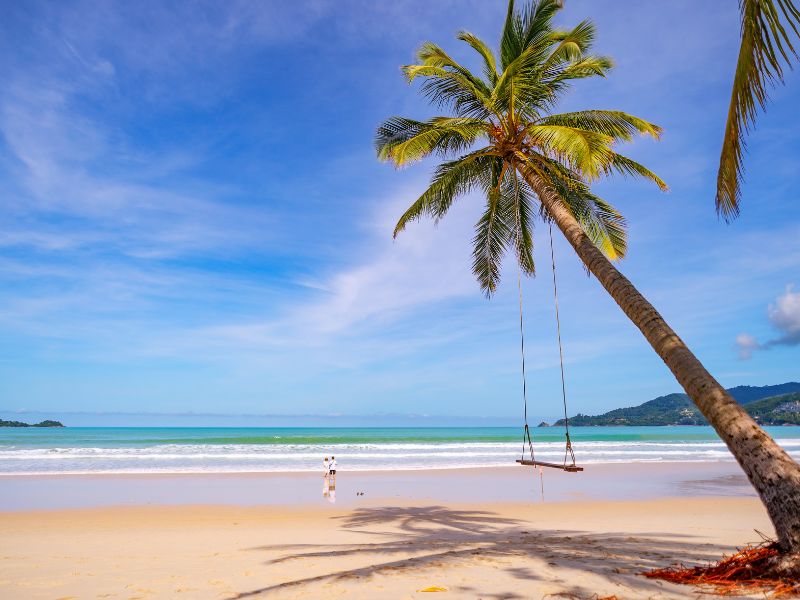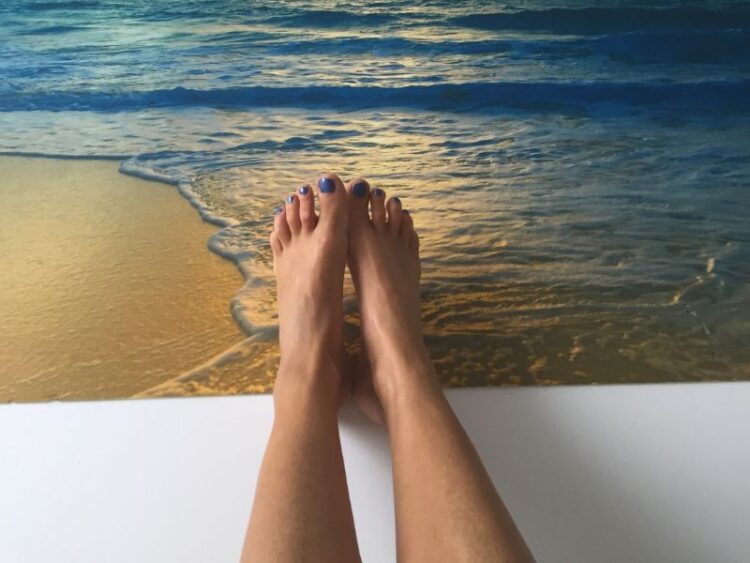Why Prioritizing a Vacation Budget is Essential is more than a money move—it’s how I protect my health, joy, and balance. Vacations are often seen as “someday” luxuries, postponed until every bill is paid, the calendar clears, or life magically slows down. But “someday” rarely arrives on its own. Without intention, joy gets pushed further and further down the list.
I’ve been there. As a single mom rebuilding after financial setbacks, I used to believe vacations were for other people—those with extra money or time. My focus was always on responsibilities first: bills, groceries, obligations. Travel felt indulgent, even selfish. Yet the cost of never making space for renewal is far greater than the price of a plane ticket. Energy fades, relationships strain, and joy becomes harder to access.
Think about the last time you came back from even a short getaway. Your shoulders dropped. Laughter came more easily. Everyday worries felt smaller. That wasn’t luxury—it was wellness. That reset is what fuels the life you’re building.
In this post, I’ll share why budgeting for travel is essential, the hidden costs of skipping it, and practical steps for making it happen. Even if your budget feels tight, you can create a realistic plan that turns rest from an occasional treat into a sustainable practice that protects your health, relationships, and peace of mind.
“Prioritizing a budget for vacation is the first step to turning dreams into reality.”
– unknown

Why Prioritizing a Vacation Budget is Essential for Your Well-Being
When I shifted my perspective and began treating travel as part of my wellness plan, my entire approach to money and self-care changed. Budgeting wasn’t just about finances—it was about valuing my well-being.
Too often, rest and play are treated as extras. But they’re lifelines. Travel is a powerful form of wellness, not an indulgence. It offers renewal, perspective, and connection in ways that staying in routine rarely can. By carving out money for rest, I was acknowledging that my health mattered as much as my bills.
Why Prioritizing a Vacation Budget is Essential is because it reframes travel from being a reward for hard work to being a foundation of sustainable living. When you budget for vacations, you protect yourself from burnout. You create intentional opportunities for joy and discovery. You also build healthier rhythms into your life by balancing responsibility with renewal.
For example, I once set aside small amounts for months to fund a weekend at the beach. It wasn’t extravagant, but the space to breathe, walk along the shoreline, and watch sunsets brought me back lighter and more focused. That trip reinforced what budgeting really gave me: permission.
Budgeting is not restriction—it’s prioritization. Just as we budget for food, housing, or health care, allocating for travel affirms that rest is essential to thriving. By making it a line in your budget, you’re not just planning a trip—you’re protecting your well-being.
The Hidden Costs of Skipping Vacations
When we continually push vacations aside, the consequences run deeper than we realize. Skipping rest costs us in ways that no amount of money can repair later.
- Emotional exhaustion: Without breaks, burnout creeps in. Energy drains slowly, and motivation dwindles. Work feels heavier, and even small tasks become overwhelming.
- Strained relationships: Time away from routine strengthens bonds. Without shared experiences and downtime, relationships can become transactional, focused only on daily logistics.
- Health impacts: Stress compounds when it’s not relieved. Poor sleep, lowered immunity, and increased anxiety often follow. Renewal isn’t optional—it’s necessary for resilience.
- Declining productivity: Rested minds are creative minds. Without breaks, problem-solving weakens and patience thins.
I learned this the hard way when I worked straight through two years without meaningful time off. I thought I was being responsible. Instead, I became less effective and more detached. My family noticed my absence, even when I was physically present.
The hidden cost of skipping vacations is losing the version of yourself that’s light, joyful, and energized. When travel is delayed indefinitely, life becomes an endless loop of work and obligation.
The truth is this: vacations are not a financial drain but a protective investment. They give back in energy, health, and connection. Without them, we pay a steep price—our peace, presence, and creativity.
The Benefits of Budgeting for Travel
Vacations rarely “just happen.” If you don’t plan for them, something else will always feel more urgent. Budgeting is what turns the idea of travel into a real, repeatable practice.
When I began setting aside a modest monthly amount, the shift was immediate. Travel transformed from an afterthought into a priority. Instead of guilt, I felt anticipation. Instead of anxiety, I felt confident that I could enjoy without overspending.
Here’s what budgeting delivers:
- Mindset shift: Travel becomes essential, not optional.
- Anticipation: Watching your fund grow builds excitement and accountability.
- Stress-free enjoyment: You spend what you’ve planned, not what you’ve borrowed.
- Creativity: With a set budget, you explore new destinations or DIY retreats that match your means.
One of my favorite examples was planning a fall foliage trip in New England. I set a budget months in advance and worked within it. The journey wasn’t extravagant, but it felt intentional. From scenic drives to small-town cafés, every moment was guilt-free because I knew the trip was funded with care.
Budgeting is not about deprivation. It’s about creating the possibility for joy. When you set money aside, you’re building a bridge to renewal. That bridge makes sure travel isn’t left to chance—it’s woven into the rhythm of your life.

Practical Steps to Create a Vacation Budget
Budgeting for travel can feel overwhelming until you realize it’s just about small, consistent choices. Here’s how to begin:
- Set a goal: Define your destination or experience. Be specific about cost.
- Start small: Even $25–$50 a month matters. Name it your “joy fund.”
- Automate savings: Set up automatic transfers each payday. Out of sight, out of mind.
- Trim with intention: Redirect money from one extra expense (takeout, subscriptions) into your vacation fund.
- Use tools: Apps like Mint or YNAB, or even an envelope, make progress visible.
When I first started, I opened a dedicated savings account and linked it to a small weekly transfer. At the end of a year, I had enough for a family road trip that didn’t disrupt my main budget. That experience taught me the power of consistency over size.
Quick Checklist:
- Open a separate savings account.
- Set a realistic target.
- Automate weekly or monthly transfers.
- Track visually (chart, app, jar).
- Celebrate milestones as you go.
The beauty of budgeting is that it grows with you. What begins as a $30 monthly transfer can later expand into larger savings goals. The point isn’t how much you save—it’s that you’re creating a habit of prioritizing renewal. Small steps are enough to build momentum toward meaningful experiences.
Reframing Travel as Part of Your Wellness Plan
Wellness isn’t just about workouts, therapy, or eating healthy meals. It’s also about rest, renewal, and play. Travel offers all three.
Think of vacations as preventive care. They reduce stress, improve sleep, and strengthen emotional bonds. For me, even a weekend trip to a local cabin gave me deeper rest than weeks of routine ever could. That shift in environment restored more balance than any spa treatment at home.
Research consistently shows that taking time away reduces burnout and boosts life satisfaction. But even without studies, we know it in our bones. Think of the lightness you feel walking through a new city, sitting under unfamiliar stars, or waking up without a to-do list. That clarity and perspective support your everyday resilience.
When you frame travel as wellness, budgeting becomes obvious. Just as you wouldn’t skip groceries or medical care, you shouldn’t skip rest. Vacations aren’t indulgences. They’re tools for long-term mental and emotional stability.
By giving travel its place in your budget, you’re affirming that your health matters. You’re saying, “I deserve to feel restored and inspired.” That reframe turns travel from optional luxury into necessary care.

Budget-Friendly Travel Examples Anyone Can Try
You don’t need a luxury resort to feel restored. Some of the most meaningful experiences are simple and budget-friendly.
- Staycations: Create a retreat at home. Plan a spa night, explore local parks, or unplug with books in your backyard.
- Road trips: Visit nearby towns or scenic routes. The joy often lies in the journey itself.
- Off-season travel: Trips in spring or fall often cost less and avoid crowds.
- Group travel: Share rental cabins or homes with friends. Costs drop, and memories multiply.
- Loyalty programs: Points and rewards can stretch your budget further.
For example, I once turned a weekend at home into a “mini-retreat.” I lit candles, unplugged devices, made a favorite meal, and treated the weekend as sacred. By Sunday night, I felt as refreshed as if I’d gone away. That taught me that intention—not price tag—is what creates meaning.
Budget-friendly doesn’t mean second best. It means creating renewal within your reality. Whether that’s a hammock in your backyard or a road trip two hours away, the point is to experience joy, connection, and perspective without financial strain.
The Bigger Picture — Why This Mindset Matters
When you commit to budgeting for travel, you’re making a declaration: “My health matters. My relationships matter. My joy is worth planning for.”
This isn’t about chasing picture-perfect Instagram feeds or luxury escapes. It’s about weaving peace and renewal into your everyday rhythm. It’s about valuing time with loved ones and yourself in ways that daily routine cannot provide.
For me, the biggest lesson came when I realized that my kids didn’t remember the toys I bought, but they remembered the trips we took. They remembered hiking trails, late-night laughter in hotels, and simple meals on road trips. Those experiences created connection in a way no purchase ever could.
Why Prioritizing a Vacation Budget is Essential is about more than money—it’s about self-respect. It’s about claiming your right to rest and presence in a world that constantly demands productivity.The bigger picture is this: when you prioritize travel, you also prioritize living intentionally. You step out of survival mode and into a rhythm where joy, peace, and connection are protected. That’s not frivolous—it’s foundational.

Why Prioritizing Your Vacation Budget Starts Today
At the end of the day, Why Prioritizing a Vacation Budget is Essential comes down to one truth: you can’t afford not to. The costs of skipping rest are too high, while the benefits of intentional budgeting ripple across your health, relationships, and creativity.
Even if you start with small amounts, you’re building a habit of prioritizing joy. A weekend retreat, a road trip, or even a well-planned staycation can deliver the reset your mind and body need. The size of the trip matters less than the act of carving out time and space for yourself.
I invite you to take one small step today. Open a savings account, set up an automatic transfer, or plan your first staycation. Start building your joy fund, no matter how small. These intentional choices open the door to experiences that restore you and remind you of what matters most.
Travel doesn’t need to be grand to be meaningful—it just needs to be intentional. Your well-being deserves that space.
So don’t wait for “someday.” Begin now. Budget for your next escape, however small, and claim the peace and presence waiting for you. Your future self—and your loved ones—will thank you for making joy non-negotiable.



